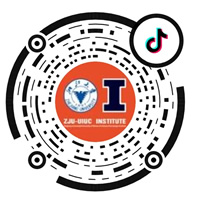
Recently, we received good news from the IEEE International Conference on Acoustics, Speech, and Signal Processing (ICASSP), the largest and most influential flagship conference on signal processing. The paper titled "Federated Learning with Differential Privacy: Algorithms and Performance Analysis", co-authored by Assistant Prof. Yang Hao (Howard), ZJUI, won the 2022 IEEE Signal Processing Society Best Paper Award. The collaborators include Dr. Wei Kang of Hong Kong Polytechnic University, Prof. Li Jun of Nanjing University of Science & Technology, Associate Researcher Ma Chuan of Zhijiang Laboratory, Researcher Ding Ming of CSIRO, Australia, Senior Lecturer Farokhi Farhad of University of Melbourne, Australia, Academician Tony Q. S. Quek of Singapore University of Technology and Design, Prof. Jin Shi of Southeast University, and Academician H. Vincent Poor of Princeton University. The paper was published in IEEE Transactions on Information Forensics and Security (IEEE TIFS), one of the top international journals in the field of network and information security, which is a Class A journal recommended by the Chinese Computer Society (CCF) and an SCI Q1 TOP journal with an impact factor of 8.28, with high influence in the fields of information security, information science and computer networks. The paper has now become one of the classic papers in the field of privacy-preserving distributed machine learning and has been ranked amongst the top 3 of the IEEE TIFS Most Popular Articles. Since its publication in 2020, the paper has received more than 830 citations in Google Scholar and 600 citations in Web of Science and has been selected as an ESI Highly Cited Paper (a paper ranked within the top 1% worldwide in its discipline).

This award-winning paper develops a novel privacy-preserving Federated Learning (FL) framework based on differential privacy techniques, unveiling a trade-off between privacy and FL model performance. Specifically, the paper reveals two important features of differential privacy-preserving FL frameworks. Unlike traditional FL models, optimal values exist for either the number of aggregations or the number of clients for a given level of protection, optimizing training performance. The paper lays the theoretical foundation for subsequent research on privacy-preserving federation learning, such as the number of clients selected and the maximum number of aggregations, and provides several important directions for exploring optimal privacy learning tradeoffs, as well as privacy guarantees for a wide range of applications of federation learning, such as distributed recommender systems, traffic prediction, and energy consumption prediction.

The IEEE Signal Processing Society is one of the major societies under the Institute of Electrical and Electronics Engineers (IEEE), and its Best Paper Award is one of the most influential international academic awards in the field of signal processing. The award does not accept nominations from individual authors, but rather from the best papers of the IEEE Signal Processing Society in the past six years, nominated by the Technical Committees of the 12 fields of the Society according to the criteria of paper quality and originality, with a maximum of six papers being nominated for the award.

Dr. Yang Hao (Howard) , Assistant Professor at ZJUI
Dr. Yang Hao (Howard) is an Assistant Professor at ZJUI. He graduated with a Ph.D. from Singapore University of Technology and Design. His main research interests are the fundamental theory and system design of wireless communication networks, focusing on the modeling and analysis of space-time stochastic services in large-scale wireless networks, optimization of the Internet of Things for information timeliness, and federal learning system design for wireless edge networks.
He has published over 45 papers in top journals and 30 papers in international conferences in the field of wireless communication networks, and one monograph published by Springer. He has more than 3100 Google Scholar citations and an H-factor of 23; he was selected as one of the top 2% scientists in the world in 2022 published by Stanford University. His research work has received the IEEE Signal Processing Society 2022 Best Paper Award, the IEEE ComComAP Conference 2021 Best Paper Award, the IEEE WCSP Conference 2014 Best Paper Award, and the IEEE WCSP Conference 2019 10th Anniversary Outstanding Paper Award.
Article Link: https://ieeexplore.ieee.org/document/9069945







